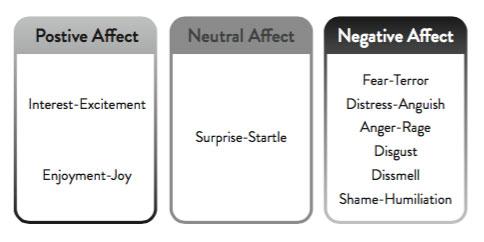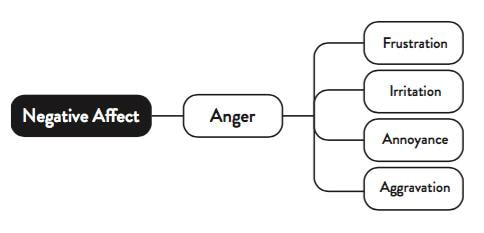|
Author: The Process Server Center | PROServerCENTER is a legal professional organization whose mission is to set a national standard for the process service industry in the United States.

Summary: A key role in learning how to apply FBI techniques while serving legal documents is developing our emotional intelligence. By doing that, we learn a crucial secret about de-escalating any difficult situation or calm an angry person in seconds. That secret consists of two simple things:
Process servers face many challenges while attempting to locate a person, to obtain more information that could help find the person to be served, to build rapport with a stranger, to alleviate an escalating situation. Most of these challenges can be resolved by observing and communicating. Observation plays a key role in identifying and gathering additional information that could prove helpful in ruling out an address. It helps a process server discover more about the residence, rule out if anyone actually lives at the given address or not; or confirm that a person may not reside here if his/her name is not on the mailbox.
Along with observation, communication helps a process server gather valuable information before and during an attempt to deliver process and may ultimately help with locating the person being served or overcome a difficult situation of avoiding. Using FBI techniques and tools process servers can successfully build rapport, diffuse a difficult situation, gather valuable information and ultimately complete the service of process right the first time.
A key role in learning how to apply FBI techniques while serving legal documents is developing our emotional intelligence. By doing that, we learn a crucial secret about de-escalating any difficult situation or calm an angry person in seconds. That secret consists of two simple things:
Experience shows that underneath anger and fear, people are often experiencing deep unresolved grief. Many people also experience abandonment and feel deeply unloved. These are added to the list because they arise often.
The physical aspect of emotion is what we commonly call feeling. When a person you are trying to serve gets frustrated, his/her face may turn deep red which is caused by blood rushing into his capillaries. In addition, some people have a difficult time labeling their emotional experience. A person you are trying to communicate with while attempting to deliver legal documents, may experience the affect of anger, for example, but not be able to communicate his experience. He will just want to go out and hit something because he has no way to express to himself or others what is going on inside him. Another person may be able to categorize his emotional experience as anger, and communicate in a rough way that he/she is angry. People who are able to not only categorize their emotional experience, but can also provide details about it, tend to have higher emotional intelligence, have better self-control, and are able to make better choices under the fire of emotion. People with lesser ability to name and detail their emotions have less emotional intelligence, less self-control, and a harder time making good choices when upset. Here is an illustration showing the degrees of emotional distress:
As a process server your communication skills and ability to detect emotions in others help you identify situations that may spiral out of control. Equipped with the right set of tools and techniques, a process server can learn to de-escalate a tough situation or calm an angry person in 90 seconds or less. It is important to be aware of the words you use, the way you phrase things. Do you phrase things always as either/ or? Are the word choices you choose always negative? Are you compassionate with how you describe the purpose of you knocking on someone's door? Do you use language that lifts up or pulls others down?
Mindfulness is one of the most effective behavioral tools you will ever have as a process server for dealing with rising anxiety, stress, sadness, and myriad other emotions. Process service is often a difficult job where both process servers and the people they are trying to serve experience negative emotions. Therefore, process servers must be equally mindful of their own emotions as they are to the emotions of the people they encounter in their daily routes to serve process. Internal mindfulness, which pays attention to our own inner self-talk, watches for any negative patters in behavior or perceptions. It takes some practice because you have to break through the distortion of what you think versus what is true. Next time you are out attempting to deliver legal documents, be mindful about what is real and what is distorted. Watch out for your own negative thoughts as they can influence how you approach the next person on whose door you are going to knock. Always take a step back and take control of your own emotions before you carry them with you and onto the next person you are going to try and deliver legal documents to. Developing your emotional intelligence as a process server is just one of several tools and techniques that top FBI agents use to de-escalate and calm an angry person. To find out more about the other tools that FBI agents use on a daily basis, consider enrolling in the program "How To Serve Like an FBI Agent". Handle difficult to serve people, learn to deal with confrontation, and cut time spent per service with tactics and strategies specifically developed for the process service industry based on the experience and knowledge of FBI agents and law enforcement officers. |
|
|
PROServerLIST helps clients hire the Best Process Servers - Pre-Screened and Certified |
|
THE PROCESS SERVER CENTER | PROServerCENTER |
✆ 917-409-7046
|
FOLLOW US
|
|
|
|
|
Copyright © 2017 - 2020 The PROCESS SERVER CENTER | All Rights Reserved



 RSS Feed
RSS Feed
